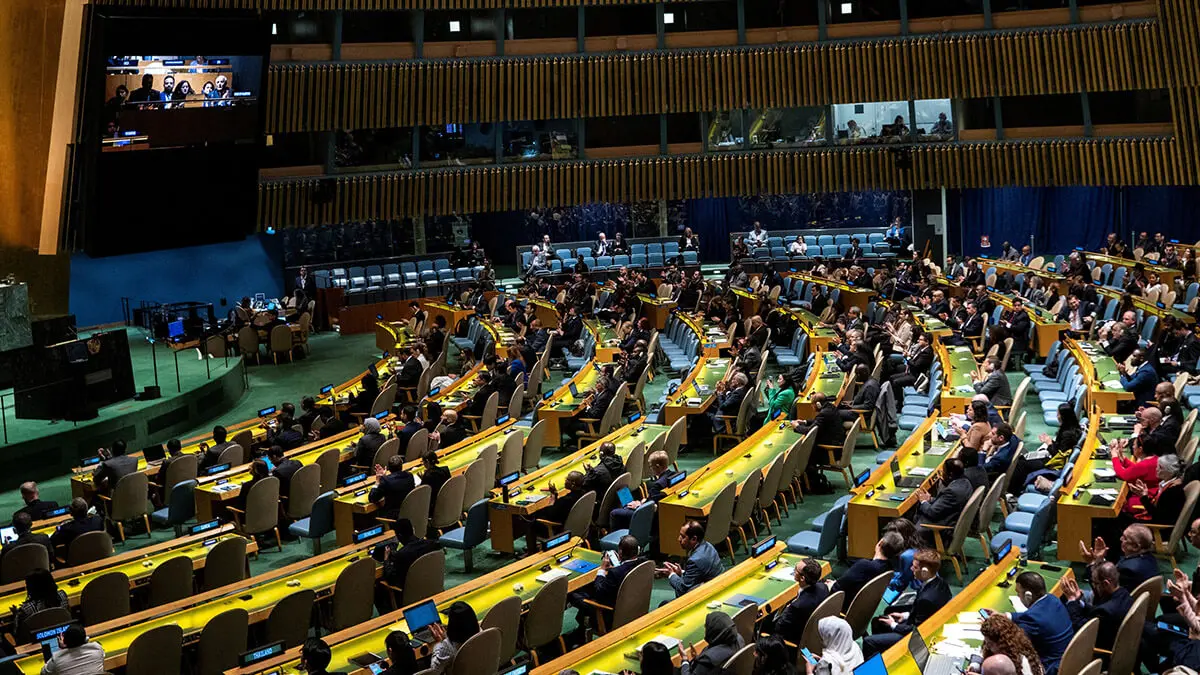The new geopolitics

Wherever we look, we find hotspots of tension, active conflicts or complicated scenarios. And, as we have pointed out on more than one occasion, if we dig a little deeper, we will find common ground between most of them.
This leads us to a first conclusion: whatever we do in any of them will have an impact on the rest, or, in other words, we cannot think in terms of simple, partial or local solutions.
It is clear to everyone that we are living at a historic turning point. Over the last twenty years, relations between countries, the balance of power and the geopolitical landscape have gradually shifted, almost without our noticing, towards a scenario of profound change.
And the changes we are witnessing require us to analyse the world around us in a different way than we have done until now.
Geopolitics provides us with a theoretical framework that helps us understand what is happening around us, as certain dynamics are relatively constant and depend on independent factors. However, although traditional theories remain valid, we must adapt to the times we live in and interpret what we see taking into account new parameters.
What is interesting about the current situation is that, contrary to what has happened until now in geopolitical balances, geography is no longer the determining factor. It is still important, and will always condition the capabilities or possibilities of nations to a greater or lesser extent, but not in the same way as it did in the past.
Geographical location helps, influences and guides, but on its own it does not irrevocably determine the future of nations, as it did in the past. Similarly, the environment, while retaining its undoubted importance, no longer has the same impact on development, as technical and technological advances have made it possible to largely overcome the constraints imposed by nature. Nature, and the environment in general, have less impact on human behaviour than humans have on nature by modifying it.
Similarly, what is known as ‘geographical determinism’ has long been abused, even though it was no longer so decisive.
Certain providential situations were considered to mean a specific, prominent and even dominant role for some countries. And not without some reason, many nations have based their belief in a pre-eminent destiny on their geographical location. This is the case of Germany, which, because of its central position in Europe, was considered destined to lead it; or England, called upon to secure its dominance of the oceans because of its insularity; or the Netherlands, which, because of its location at the mouth of the Rhine and opposite the Thames, was by its very nature destined to lead European trade. On the American continent, the United States, located at the centre point between the two main centres of civilisation, Europe and Asia, and protected by three oceans, considered itself inexorably called to exercise power, something that still endures today. And Russia, which controls one sixth of the landmass, felt the responsibility and destiny to rule the other five sixths.
Geography, which was fundamental in the past, although it has not lost its importance, helps, influences and guides... but on its own it no longer irrevocably and permanently determines the destiny of nations.
In the current scenario, we can say without a doubt that geographical space is not the only cause of the importance of states. What is known as ‘Geopolitik’ conditioned the power of countries to their geographical extent. Space nourished and in turn served as a defence for the state, while at the same time encouraging its expansion. However, today, the concentration in small territories of energy and material resources that are essential to the international community, as well as technological development, add other forms of power to that which resulted from size.
Different geopolitical theorists have also traditionally speculated about the opposition between maritime and land states. Pre-World War II British and American geopoliticians analysed international tensions and explained the behaviour of the great powers by also taking this factor into account. Today, however, the difference between continental and island states is no longer so marked, and this is not a decisive factor.
The consequence of all this is that contemporary geopolitics has become much more concerned with the management of political space as it is organised than with shifting borders, the traditional object of ‘Geopolitik’.
In the days of ‘Geopolitik’, the nation-state was the object of all analysis. Mackinder, on the other side of the English Channel, Haushofer, in Bavaria, and Spykman, on the other side of the Atlantic, to mention some of the most relevant theorists of traditional geopolitics, did not base their work on the behaviour of the population, as it was taken for granted that the latter and its opinions were in line with those of its rulers, whether elected or imposed.
Today, geopolitics is more deeply concerned with the protection and management of the environment. Bearing in mind that none of the threats we face in our time, although it may seem otherwise, are confined to a particular nation or group of nations, those that lurk around us are cross-cutting, and the sources of conflict go far beyond rivalry between countries. No state, however powerful it may appear, can solve the problem of natural resource scarcity, halt environmental degradation, or, of course, alleviate the countless situations of misery and despair that serve as fertile ground for various radical movements.
All of the above should lead us to ask ourselves a question: are we dealing with the new situation in the right way?
If the source of the threats is now strictly focused on countries, as mentioned above, does it make sense to confine them within borders? Will the solutions come through the subjugation or defeat of this or that nation?
Something that has become clear in recent times is that we are not only facing state actors. What is more, the origin of conflicts no longer lies within borders. Furthermore, conflicts are no longer decided solely in a physical space; they are fought in other domains such as the cognitive or cyber domains, where there are obviously no borders and where state actors are very often not the only ones involved.
When we identify the main causes of current conflicts, we identify two potential and main sources of conflict: on the one hand, lack of development and absence of hope, which favours the spread of extremist and radical ideologies, generally supported in an Islamic religious context; and, on the other hand, the scarcity of critical resources, some of which are fundamental to the technology industry and therefore key to economic development, and others which are essential for life, such as water.
Given this scenario, traditional geopolitical theories lose some of their value, forcing us to redefine, at least in part, the theoretical framework that helps us deal with the new reality.
Geopolitics is by no means an exact science, and we must emphasise once again that we should not discard traditional theoretical currents. However, we need to seek new approaches that will help us lay the foundations for understanding what is happening so that we can propose the most appropriate solutions.
- M. Gallois PIERRE, ‘Geopolitics, the paths of power’, Army Editions Collection, Madrid 1992
- Coutau-Begarie, HEVÉ, ‘Geoetstrategia del Pacífico’ (Geostrategy of the Pacific). Army Editions Collection, Madrid 1990
- Marshall, TIM, ‘Prisoners of Geography’. Ed. Península, Barcelona, 2017



